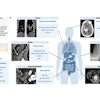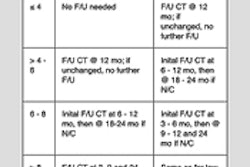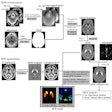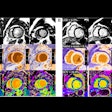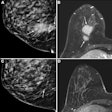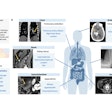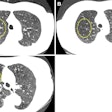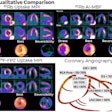AuntMinnie.com Case of the Day Author Template
Case title
The short case title should generally include the patient's age, gender, symptoms, and/or brief history if applicable.
Examples:
49-year-old woman with chest pain
9-year-old girl with cough, fever
30-year-old HIV-positive man with dyspnea
Contributor information
For author listings on the Case Overview page, please include names, credentials/degrees, and names of institutions/facilities for proper attribution, as well as email addresses in case we have questions about the case, need additional case information, and for final online review.
Also, each contributor/author will need to agree to AuntMinnie.com's contributor agreement terms, which give AuntMinnie.com the rights and permissions to publish the case: http://contentagreement.imvinfo.com.
Page 1 - Contributor information, patient history, images, questions
The first page of the case should include the contributor information at the top, the patient's history, case images, and questions regarding the case.
Contributor text:
Our appreciation is extended to Dr. [Name(s)], [Institution Name] in [City, State, Country], for contributing this case.
History: Can include more descriptive information, patient's medical history, etc.
Example:
History: A 49-year-old woman is referred for an emergency chest x-ray as she has right-sided chest pain and dyspnea.
Images:
Next, upload and place images. Images should NOT include any identifying information about the patient. Images should be high-resolution JPG, PNG, or GIF images. The system will automatically create thumbnail images that link to larger versions for viewing in a pop-up window.
Questions:
Use the "Create New Multiple Choice/True/False Question" buttons to add case questions. Multiple choice and true/false formats and examples are listed below.
Please note: The first question must apply to an image included on page 1 that could be used as the case thumbnail image featured on the site home page.
Multiple choice question examples:
Which choice best characterizes the salient findings?
What is the salient finding?
The differential diagnosis should include which of the following?
Enter the answer options, and be sure to select the correct answer and save changes for the question.
True/false statement examples:
The patient has solitary right coronary artery.
There are abnormalities in the pulmonary veins.
Please include individual T/F statements as complete sentences, select correct answer, and save changes.
Page 2 - Additional images and questions (if needed)
Include additional images and questions as needed. For example, if the patient underwent further imaging with a different modality.
Additional questions or images can be included on other pages as needed as well.
Page 3 - Findings and diagnosis
Case images are typically shown again here but smaller and/or annotated indicating the findings, along with a list for differential diagnoses and the final diagnosis.
Findings: Include a description of the image findings by modality.
Example:
Findings
Chest CT: Axial and coronal CT images demonstrate a left upper lobe, irregularly shaped conglomerate opacity formed from smaller nodules, which are in a peribronchovascular distribution.
PET/CT: The left upper lobe lesion demonstrates moderate FDG uptake.
Differential/final diagnosis: List possible differential diagnoses in a bulleted list, followed by the final diagnosis.
Example:
Differential diagnosis
- Coronary artery stenosis
- Coronary vasospasm
- Vasculitis
- Noncoronary causes of cardiac disease
Diagnosis: Critical coronary artery stenosis
Page 4 - Discussion/key points and references
Please include discussion text in paragraph form OR include a bulleted list of key points. Text can include the condition's pathophysiology, epidemiology, clinical presentation, imaging features, more information regarding differential diagnoses, treatment, etc..
References
Below the Discussion/Key point section, please include an ordered list of references listed alphabetically by author last name -- different examples are shown below. We follow American Medical Association (AMA) style.
- Federle MP, Jeffrey RB, Woodward PJ, Borhani A. Diagnostic Imaging: Abdomen. 2nd ed. Philadelphia, PA: Lippincott Williams & Wilkins; 2009:135-139.
- Pediatric x-ray imaging. Food and Drug Administration website. http://www.fda.gov/Radiation-EmittingProducts/RadiationEmittingProductsandProcedures/MedicalImaging/ucm298899.htm. Accessed 27 March 2013.
- Pipavath SN, Godwin JD. Acute pulmonary thromboembolism: A historical perspective. AJR Am J Roentgenol. 2008;191(3):639-641.
- Wallace RJ Jr, Griffith DE. Antimycobacterial agents. In: Kasper DL, Fauci AS, Longo DL, Braunwald E, Hauser SL, Jameson JL, eds. Harrison’s Principles of Internal Medicine. 16th ed. New York, NY: McGraw-Hill; 2005:946.
- Wild JM, Marshall H, Xu X, et al. Simultaneous imaging of lung structure and function with triple-nuclear hybrid MR imaging. Radiology. 2013;267(1):251-255.



